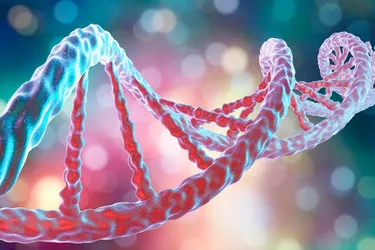Understanding the Interplay of Genes and Lifestyle: The Truth Behind Health and Longevity
In a bustling café in Chicago, two friends exchanged stories over steaming cups of coffee. One recounted the tale of her 80-year-old uncle, a lifelong smoker who defied every health warning. The other shared the tragic story of her cousin, a kale-loving marathon runner who suffered a heart attack at just 45. Both tales lingered in their minds, stirring a prevailing question: if genetics dictate our health, what’s the point of maintaining a healthy lifestyle? Are measures like exercise and nutrition merely gestures against a predetermined fate?
The Allure of Outliers
These striking anecdotes resonate deeply because they challenge our understanding of health. Dr. Laura Zimmermann, medical director at the Rush University Prevention Center, explains that such stories epitomize what scientists refer to as “outliers.” “People love to focus on the exceptions,” she says. “But they don’t represent the broader reality.” For most individuals, maintaining healthy habits, including proper nutrition and regular physical activity, significantly reduces the risk of age-linked diseases such as heart disease, type 2 diabetes, cancer, and Alzheimer’s.
Yet the narrative surrounding health is far from black and white. Genes undoubtedly play a role in our susceptibility to various conditions. “Genetic factors contribute to your risk for many diseases, but they rarely act in isolation,” Zimmermann notes. It’s essential to grasp that inheriting certain genetic traits often increases the odds of developing specific ailments, but this does not cement our fate.
The Epigenetic Landscape
Herein lies the fascinating concept of epigenetics—the idea that while our genes provide a blueprint, external factors can either activate or silence these genetic predispositions. “Environmental conditions and lifestyle can trigger epigenetic changes that drastically influence health outcomes,” explains Dr. John Kelly, president of the American College of Lifestyle Medicine.
“Each gene doesn’t just have one switch, there are potentially hundreds or thousands,” he adds, emphasizing the complexity of our genetic makeup. This intricate dance makes it challenging for scientists to pinpoint specific epigenetic changes responsible for increased disease risk. However, there’s a consensus that lifestyle elements like poor diet, smoking, and inactivity have considerable positive and negative effects on gene expression.
The Diseases of Toxic Lifestyle
Numerous studies support the hypothesis that lifestyle choices significantly contribute to “diseases of aging.” Kelly aptly phrases it: “Coronary heart disease is a foodborne illness. For most, it’s caused by food and can be reversed by food.” Heart disease remains the leading cause of death in the U.S., yet research suggests that an astonishing 80% of heart disease cases could be preventable.
- Heart health directly relates to nutrition; a poor diet can raise risks.
- Regular exercise can cut the risk of heart disease by one-third, even with genetic predisposition.
- Potential prevention of up to 90% of type 2 diabetes cases through lifestyle modifications.
“For optimal heart health, a plant-based diet is recommended,” Zimmermann advises. “That doesn’t mean you have to be vegan or vegetarian. The aim is to replace processed foods with whole foods like fruits and vegetables.” Simple staples, including whole grains and lean proteins, enhance health and reduce risks considerably.
The Lifestyle-Specific Disease Connection
Nutrition’s impact extends beyond heart disease. Genetic variations in diabetes, such as those found in the KLF14 and ENPP1 genes, can raise diabetes risk by nearly 30%. However, dietary habits, physical activity, and even smoking status can significantly sway outcomes. “In fact, up to 9 in 10 diabetes cases could be preventable through lifestyle changes,” claims Zimmermann, citing findings from the landmark Diabetes Prevention Program, which indicates the potential for a 65% risk reduction through structured diet and exercise.
When it comes to cancer, risk modification through lifestyle choices proves equally pertinent. While mutations like BRCA1 or BRCA2 substantially elevate breast cancer risk, they do not tell the full story. Many who lack such mutations also suffer from the disease. A study by Cancer Research UK posited that approximately 40% of all cancers could be mitigated through key lifestyle adjustments, such as:
- Avoiding smoking
- Maintaining a healthy weight
- Eating a balanced diet
- Limiting sugar and alcohol intake
- Reducing sun exposure
The Alzheimer’s Factor
Specific genetic mutations, such as APOE4, heighten Alzheimer’s disease risk, but those without such mutations can also develop the condition. Surprisingly, lifestyle factors could account for about a third of Alzheimer’s cases. A meta-analysis published in the *Lancet Neurology* found strong correlations between diet, exercise, and reduced risk.
The MIND diet—emphasizing brain-boosting foods like vegetables, berries, fish, and olive oil—has shown particular promise in promoting neurodegenerative health. However, experts stress that while healthy habits are influential, they won’t serve as a foolproof shield against every illness.
A Pragmatic Approach to Health
Ultimately, the relationship between genetics and lifestyle is convoluted. As Zimmermann states, “In some cases, you may do everything right and still face serious illness.” However, she encourages individuals to focus on elements they can control, namely diet, exercise, regular medical checkups, and following prescribed treatments.
In a world filled with uncertainties, one certainty remains clear: while genetic predispositions may chart a rough course, our lifestyle choices navigate the actual journey. The power to influence health outcomes rests not solely in fate but in the daily decisions we make. As time unfolds, the landscape of health may evolve, but the age-old adage holds true: you truly are what you eat—and do.
Source: www.webmd.com


